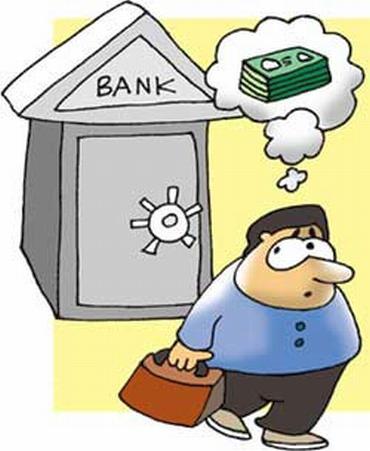
There are other charges too that you need to budget for
Vishal applied for a home loan and was happy as he had managed to get a good deal on the loan interest rates. He shared the news with his friend and how he thought he had got a loan at what he thought was a decent rate. His happiness was rather short lived, when his friend asked him how much was the processing fee, was the rate fixed or floating and so on…
Vishal had no clue about all this; he had thought that interest rates are the only thing to consider when taking a loan; so he had not bothered to check about anything else. If you are taking a loan do not make the same mistake as Vishal and do check about the following.
What to check when taking a home loan:
The interest rate is hands down the most important factor when taking a home loan due to obvious reasons; it impacts the borrowers pocket the most. Since home loans are for big amounts and they run for years which means that a decision taken in the current scenario will continue to impact the monthly outflow for a long time in the future. A difference of a few basis points can alter the overall interest burden of the borrower.
However other factors should also be given due consideration when applying for a loan.
Here are four of them...
Is the interest rate fixed or floating?
This aspect though related to interest rate often gets missed in the fine print. Loan rates can be fixed or floating; a fixed interest rate means that the interest rates will remain same throughout the loan tenure while a floating rate will change depending on the bank policies but largely due to the market conditions. Usually banks have different rates for fixed and floating rate loans.
Another factor to bear in mind is that fixed loans are usually not fixed; somewhere in the loan agreement it will say that after “X” years the bank will revise the rates.
If a borrower expects the rates to rise then obviously a fixed rate makes sense and if the rates are likely to fall then a floating rate should be chosen. So just don’t look at the lowest rate, check if it fixed or floating.
What are the other charges?
While the interest payment is the biggest cost involved in taking a loan there are other costs too. Like:
Processing fees
This fee has to be paid upfront and is non-refundable. So whether or not the application is accepted this has to be paid. Some banks may ask the applicant to pay a small part while applying for the loan while the remaining is paid when the loan is disbursed. This fee may be charged at a flat rate or as a percentage of the loan amount.
Legal fees
This is charged by the bank to ascertain the legal status of the property before a loan is sanctioned. The bank usually hires lawyers and this is the fee that is charged for paying them. If a project is approved by a lender then this fee may be waived; so do check about this too.
Prepayment penalty
While this fee has been waived off by almost all lenders in the current scenario, however it still makes sense to be aware of it and check whether it forms a part of your loan agreement or not.
Apart from the above there might a few more charges also, which individually may appear small but put together they can make a big dent in the borrower's pocket. A lender advertising a low interest rate might be charging higher incidental charges and the reverse is also true; so understand all charges before inking the deal.
Is insurance bundled with the home loan?
Getting an insurance cover for the loan is a good idea however this must be chosen by the applicant as per his/her requirement. Often a simple tem insurance plan may suffice for it. Sometimes banks may bundle an insurance plan with the loan without the borrower even being aware of it and the borrower may end up paying for it along with the EMI without ever realising it or worse thinking that the insurance cover is free!
What is the loan tenure?
This is something that needs to be given due weightage when making a comparison between lenders. Obviously one can borrow for a period less than the maximum term for the loan allowed by the bank. Sometimes a borrower may want a longer duration loan which might not be within the banks polices or they may have a different set of interest rates for such loans. So check that the loan term matches your financial planning. Loan tenure also impacts the EMI burden and the overall interest cost.
Taking a home loan is often a cumbersome and tedious process which does require a considerable amount of homework. Hopefully the above information will help you in the decision making process.
Illustration: Uttam Ghosh/Rediff.com
The author is a credit expert with 10 years of experience in personal finance and consumer banking industry and another 7 years in credit bureau sector. Rajiv was instrumental in setting up India's first credit bureau, Credit Information Bureau (India) Limited (CIBIL). He has also worked with Citibank, Canara Bank, HDFC Bank, IDBI Bank and Experian in various capacities.











